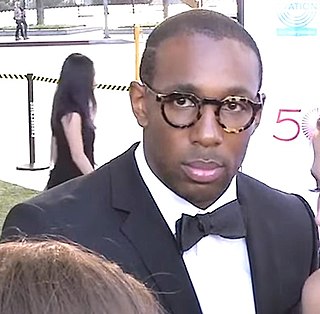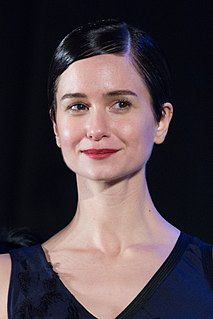A Quote by Jay Roach
People have an actual bias against there being some kind of popularity for political films, and when they get acknowledged, it helps keep the conversation going.
Related Quotes
Unless you're willing to fight and refight the same battles until you go blue in the face, drive the people you work with nuts going over every detail to make certain you've got it right, and then take hit after unfair hit accusing you of bias, there's no use even trying. You have to love it, and I do. You just hope it strikes a spark somewhere in the critical mass of public opinion and helps some people to resist further the seductions of political and corporate advertising.
Most guitar players get a name because the band that they're in has become popular. That doesn't mean that they're particularly good, whereas conversely, you've got people like Albert Lee, an incredible player, one of my favourites who's not in a famous band, so he doesn't get into the popularity polls. I have to laugh at some of the people that do get into the popularity polls - some of them are so bad, but they're in a band that's at the top of the hit parade. I think people mix that up.
As the American Muslim community gets a little bit freer in terms of not being under the thumb of that kind of oppressive mentality, there is going to be some internal dissent. When you are consciously oppressed, you tend to sort of band together and unite because there's a necessity to do so. And that as that proceeds, some of those difference get more into the fore and I think that's the reason you are seeing some internal dissension as a byproduct of the fact that there is not this kind of immediate urgency to unify against this kind of onslaught because that onslaught is refuted.
Conversations...begin with the sort of imaginative engagement you get when you read a novel or watch a movie or attend to a work of art that speaks from some place other than your own. So I'm using the word 'conversation' not only for literal talk but also as a metaphor for engagement with the experience and ideas of others. And I stress the role of the imagination here because the encounters, properly conducted, are valuable in themselves. Conversation doesn't have to lead to consensus about anything, especially not values; it's enough that it helps people get used to one another.
There are certainly people for whom politics is not a category that helps you understand human existence. In fact, it's kind of a detour into superficiality, and although I disagree with those people, I don't think it's the case that everyone who writes has to write politically or has to write in opposition to the really horrendous things that are going on on a political level in the world today. There are some writers who simply aren't any good at that and really should stay away from it.





































